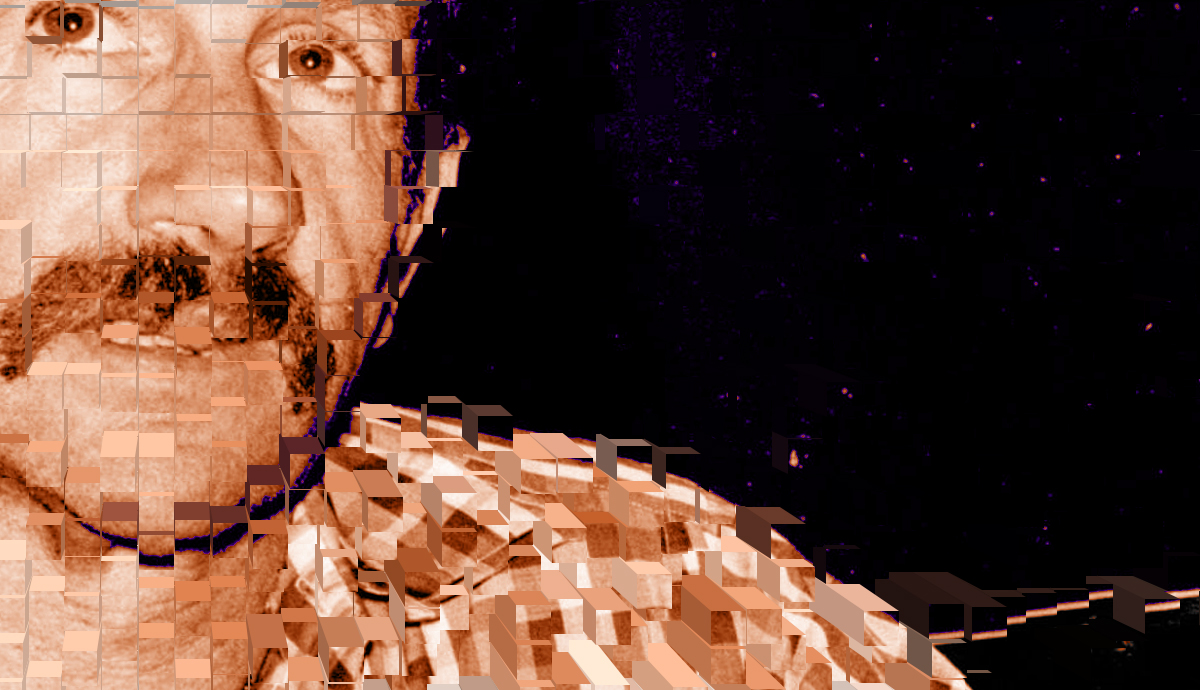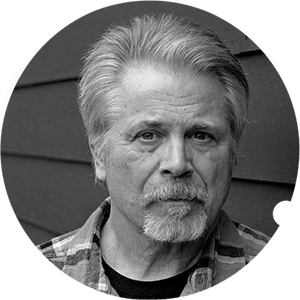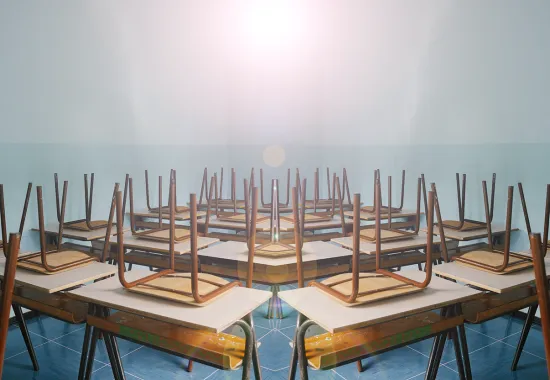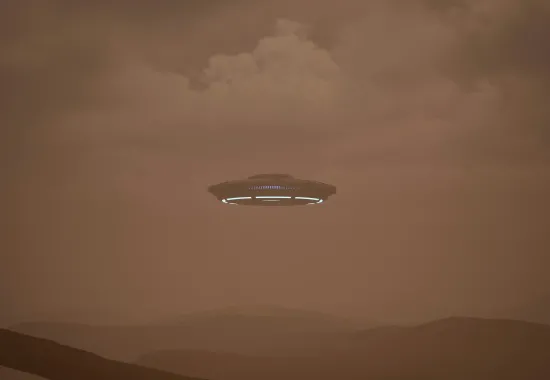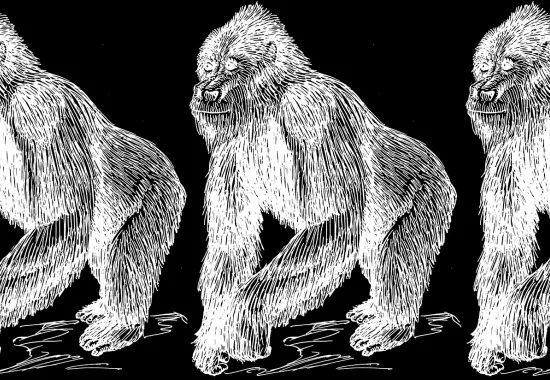Permission to Be: Philip Levine at Columbia, 1978
On the first day of our workshop Phil asked, “Are there any geniuses in this room?” No one raised a hand or said a word. “Good,” Phil said. “I have noth- ing to teach a genius, and a genius doesn’t need this class. Also, I am not a genius. If I were I wouldn’t be teaching. I’d be writing genius poems. Now that that’s out of the way, we can get to work.”
This was a time when students were writing poems that sounded slick and smart but did not hold up under clear-eyed, bullshit-detecting scrutiny, which Phil was happy to provide. Other students wrote versions of the then-current mode—sincere, lyric-narrative poems that reliably contained, like the prize in a box of Cracker Jacks, an epiphany.
Tess Gallagher was all the rage, and in the middle of another workshop day Phil was obviously exasperated by the prospect of discussing yet another Gallagher knock-off. He suddenly struck the table with his knuckles, a light knock, and pushed the poem away toward the center of the conference table. He closed his eyes, and then just sat there, doing nothing. The author of the abandoned poem stared at Phil, her expression an anxious mix of terror, and hope beyond hope. The rest of us held our collective breath, not knowing what the hell to expect.
“Tess is fine,” Phil said finally, “but if you’re gonna steal, go back and steal from the old guys—go to Keats, go to Hardy. Find out why they’re still around. See what you can do with that.”
“Listen,” he said, and took Hardy’s “Transformations” from his notebook, and read it to us. Twice. Here’s the poem:
Portion of this yew
Is a man my grandsire knew,
Bosomed here at its foot:
This branch may be his wife,
A ruddy human life
Now turned to a green shoot.
These grasses must be made
Of her who often prayed,
Last century, for repose;
And the fair girl long ago
Whom I often tried to know
May be entering this rose.
So, they are not underground,
But as nerves and veins abound
In the growths of upper air,
And they feel the sun and rain,
And the energy again
That made them what they were!
He let that sink in. In the silence, Phil was teaching. Then he picked up the poor woman’s workshop poem and launched into the devastation.
Phil was my hero, my favorite poet. At Columbia I waited through three semesters of workshops for his arrival. He would love and praise my work. He would direct my thesis. We would become friends. This was the plan.
And in fact the time for workshop with Phil did arrive, though it had seemed extraordinarily long in coming, as long as a kid’s Christmas Eve, or any distant event the imagination has magnified by desire.
The first few classes I spent in silent awe. We had been expecting a poetry god, and Phil did not disappoint: he was larger than life, tough and wiry like his poems, with a blithe confidence in his powers—he could, for example, see right through poems with his x-ray vision. He was unapologetically masculine and moved and carried himself with subdued grace, as if he were still capable of hard manual labor. His humor was of a type I instantly recognized from my Long Island upbringing—caustic, and deflating of the least hint of pretension. Though he claimed to be from Detroit, he easily could have fit in with the working-class New York men that had surrounded me throughout boyhood. Except, this was a man who also wrote sublime poetry.
Then one class it happened. Phil shuffled through the pile of poems in front of him and pulled out my very own poem! But instead of asking me to read it, and then soliciting student responses—which was the convention—he read my poem out loud himself, in his nasal voice, accompanied by a barely discernable, finely honed edge of sarcasm. At least, that’s what I heard. Probably just my nerves, I thought to myself. I hoped no one else had noticed.
Phil finished reading and paused briefly. I looked furtively around the table. And then without ceremony he proceeded to eviscerate my poem. He tore it a new one. He called it a “B movie” poem. Sometimes we were in the mood for a B movie, he granted, and B movies could be entertaining in their way. In a trivial way. Then he talked about some of his favorite B movies, most from the thirties and forties. He ridiculed them, but also paid them homage, at least for taking people’s minds off darker matters.
But that was the problem. Poems should contain those darker matters that B movies skirted. Sure, such faux art did satisfy some of our baser fantasies and desires. That didn’t change the fact that they were . . . crap. Like my poem. My poem was crap.
Any comments?
He made me laugh, and he called me honey—this rough guy from Detroit.
There were none. I think we must have discussed the other workshop poems after that, but I have no recollection. I was in a blackout. The next thing I remember is walking out of the classroom and several of my fellow student poets gently patting my back and saying things like, “Don’t worry, man—I hear he does that in every workshop,” and “Oh, Jeff, are you are all right?”
I hurried from the building and went directly to the West End Cafe. I drank a beer and three shots of Seagram’s Seven as quickly as I could, then left before any of my classmates arrived for the traditional postworkshop cocktail hour debriefing. I could not bear to suffer any further consolation.
What rose in me during the days and weeks after this class was not resignation or despair, but anger, anger and defiance. No way this is the end of it, Levine, I said to the looming figure in my mind. I’m going to write other poems—much better poems—and you are going to like them, you are going to like my poems and you are going to like me. Yes, and you will direct my thesis, too! I had many imaginary conversations with the poet-god Philip Levine, who had destroyed me. I could not wait to prove him wrong. I seethed, and I wrote.
My reaction could have been otherwise. I had seen students whose confidence was destroyed by workshop comments. A few had simply dropped out. I was once talking with another student in the hall when a woman burst from Phil’s office, sobbing. I found out later that Phil had turned down her thesis; it wasn’t good enough, he had told her. She would not get a degree.
Others continued after taking critical beatings, but made inner adjustments. Their comments in workshop afterward became reflexively qualified, their general manner a kind of meek hesitation. Their expectations as to what the rest of their time in the program might give them, and what they themselves might add to poetry, were diminished.
Teachers have power.
I don’t know why I didn’t react this way. I have come to believe that in addition to talent, a kind of stubbornness is necessary for life as a poet. Or maybe it is defiance.
Whatever one calls it, the result is a refusal to believe when some part of the world tells you that what you’ve made is no damn good, implying that you should not quit your day job. The desire to redouble your effort when faced with rejection is essential. This desire rose up in me without summons—and I used it to good purpose with Phil, though that was hardly the last time in my life I’ve made use of it. Ars longa, vita breva . . . for the artist, the power to reject rejection is the gift that keeps giving.
I think Phil recognized my reaction and respected it. He knew that his way of teaching made use of strong challenge, and he had seen students react to it differently. He’d been teaching long enough to see what worked, who survived and who didn’t. In any case I did begin to write better poems that semester, and Phil began to say good things about them. I asked him to direct my thesis. Before he agreed, he asked how old I was. When I told him—twenty-eight—he nodded and said, approvingly: “You’re not a kid; you’re a grown-up man. Good.”
During our meetings about the thesis I remember very little discussion of the actual poems—“These you should take out; the others are fine,” was the extent of Phil’s counsel in that arena. We talked mostly about my life—my job, my wife, where I’d come from, what my parents were like, sports I played, books I read, movies I loved. Phil would ask questions about these things as if he really was interested, and then respond with moments from his life. We connected. We liked each other.
“You’re a grown-up man.” I see now that he meant this as both compliment and challenge. He made many other simple but affirming comments every time I saw him, at Columbia, and in all our encounters over the years since. He wrote me countless references for jobs, grants, etc. When I started a literary press with my wife, Phil judged our first poetry contest, and the book remains one of our best sellers. He advised me when I was disconsolate about my place in the art, and he celebrated when good things came to me. We weren’t frequently in touch, but I relied on his presence in the world for continuing inspiration.
Once, when I hadn’t seen or talked to Phil in several years, I had a very serious motorcycle accident. I lay in the hospital, not at all sure I’d survive, and he called, having heard about the accident through the poetry grapevine. We talked for a long time. He told a story of his brief experience with motorcycles. He made me laugh, and he called me honey—this rough guy from Detroit. A few weeks later, another call.
I don’t know the right words to say how much Phil Levine has meant to me, as poet, as man, as model. No—in terms of my life as a poet, there is one word: everything.
When I first encountered Phil, so many years ago, I made a study of his way of being in the world—his combination of rigor and gruff humor, his surprising sweetness, how he did not suffer fools—and I saw a way through my own life. It wasn’t that I wanted to be Phil. The lesson of Phil’s example said to me, simply, that I could be what I was. And that had to be enough, really—any other way was bullshit. For whatever it’s worth, that’s what I’ve done.
This essay originally appeared in Coming Close: Forty Essays on Philip Levine, edited by Mari L'Esperance and Tomás Q. Morín. Reprinted with permission of the publisher © 2013 Prairie Lights Books.
Recommended
Encounter
Schizophrenic Sedona
Recense (realized)


